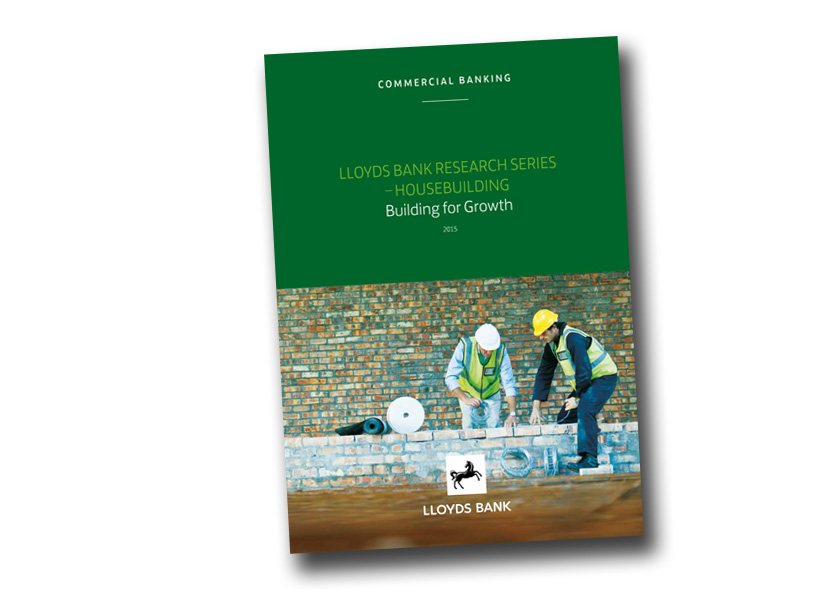
A shortage of skilled workers in the housebuilding industry – and the current planning system – is hindering efforts to tackle the UK’s housing crisis, according to new research released by Lloyds Bank.
The first Lloyds Bank Commercial Banking report on the UK housebuilding sector, Building for Growth, has analysed the state of the industry, and the opportunities and challenges it faces in the future.
It surveyed those within the housing supply chain, from SME contractors to major national developers and found real concern among these businesses on the effect of the sector’s skills shortage – not only on individual firms, but also on national housebuilding rates and the UK economy as a whole.
On a positive note, the research did find some approval for measures announced in the Summer Budget designed to tackle the current housing shortage, for example, plans to grant automatic planning permission for building projects on disused industrial sites.
According to the report, there are a number of key issues preventing the effective tackling of the housing shortage, including slow planning decisions (46 per cent), public opposition to development (42 per cent) and lack of skilled workers (25 per cent).
A quarter (24 per cent) said the skills shortage is the biggest broader challenge currently facing their business. More than a third (35 per cent) believe there is a lack of suitable candidates to fill existing and new jobs.
Despite the challenges cited in the report, housebuilders seem to be optimistic about the future, with respondents giving an average score of seven out of ten when asked to rate their confidence in the success of the UK housebuilding industry in the future.
Alasdair Gardner, head of housebuilders, Lloyds Bank Commercial Banking, said: “This report sheds light on the key areas of support that firms in the sector need to ensure the long-term success and sustainability of the industry.”
Stewart Baseley, executive chairman, Home Builders Federation, commented: “The outlook for housebuilders is more positive than it has been for some time, and the findings of this report reflect that.”








